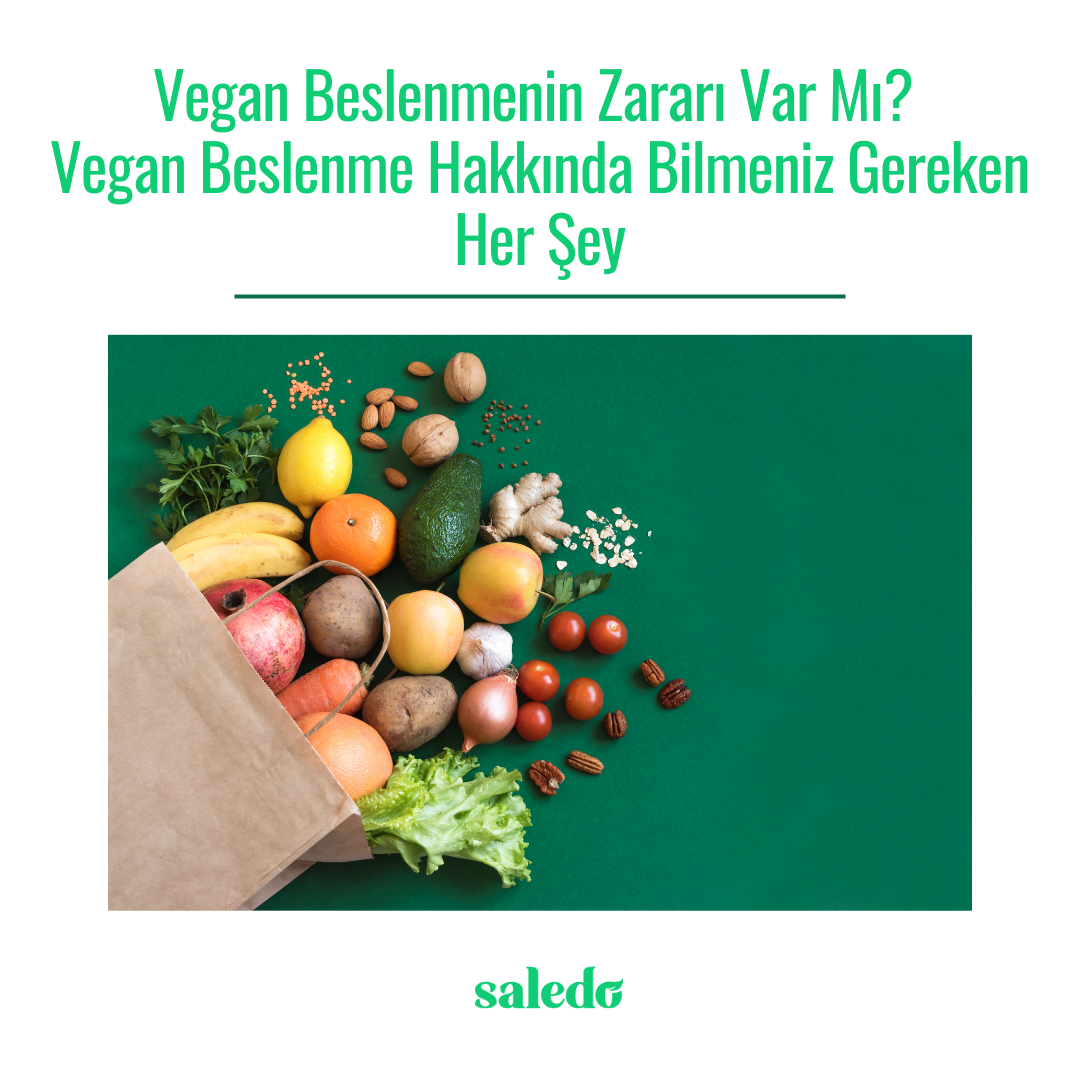Is a Vegan Diet Harmful? Everything You Need to Know About Vegan Nutrition

Is a Vegan Diet Harmful? Everything You Need to Know About Vegan Nutrition
What is a Vegan Diet? The Core Philosophy of Veganism
Veganism is a dietary approach that eliminates all animal products and relies solely on plant-based foods. Many people choose a vegan diet due to environmental concerns and animal rights, while others adopt it for its potential health benefits. This dietary style is rich in fiber, vitamins, and minerals, which may help prevent various health issues.
Health Benefits of a Vegan Diet: Advantages of Plant-Based Eating
When properly planned, a vegan diet can offer several health benefits. Here are some of the most well-known advantages:
1. Benefits for Heart Health
A vegan diet is rich in fiber, antioxidants, and low in saturated fats, all of which contribute to better heart health. Studies have shown that vegans have a lower risk of heart disease (Dinu et al., 2017). Additionally, high-fiber plant foods help regulate blood pressure and lower bad cholesterol (LDL) (Harvard T.H. Chan School of Public Health, 2020).
2. Weight Control and Diabetes Risk Reduction
A plant-based diet is typically lower in calories and higher in fiber, which helps with weight management and obesity prevention. Research suggests that a vegan diet can help reduce body mass index (BMI) and improve insulin sensitivity, lowering the risk of type 2 diabetes (Tonstad et al., 2013).
3. Reduced Cancer Risk
Plant-based foods are rich in phytonutrients and antioxidants, which may help protect against certain types of cancer. Studies indicate that a vegan diet may reduce the risk of cancers linked to processed meats and animal-based foods (Vallianou et al., 2014).
Potential Risks of a Vegan Diet: What to Watch Out For
A vegan diet may lead to nutritional deficiencies if not properly balanced. Here are some key nutrients that require attention:
1. Vitamin B12 Deficiency
Vitamin B12 is found exclusively in animal products, making it difficult for vegans to obtain naturally. B12 deficiency can lead to nerve damage and red blood cell production issues. Therefore, vegans should take B12 supplements or consume fortified foods (Allen, 2009).
2. Iron Deficiency
Plant-based iron (non-heme iron) is less efficiently absorbed than animal-based iron (heme iron), increasing the risk of iron deficiency anemia. To improve absorption, vegans should pair iron-rich foods with vitamin C sources (Hunt, 2003).
3. Omega-3 Fatty Acid Deficiency
Omega-3 fatty acids are crucial for heart and brain health. While vegans can get omega-3s from walnuts, chia seeds, and flaxseeds, these sources may not convert efficiently into the essential forms found in fish. Therefore, omega-3 supplements may be necessary (Toren et al., 2013).
How to Transition to a Vegan Diet Safely
When adopting a vegan lifestyle, proper nutrition planning is essential. Here are some key tips:
1. Maintain a Diverse and Balanced Diet
A healthy vegan diet should include a variety of nutrient-dense foods. Key sources of plant-based protein include legumes, whole grains, tofu, and tempeh.
2. Consider Supplements
Vegans should supplement essential nutrients like B12, vitamin D, and omega-3s to avoid deficiencies.
3. Make Smart Shopping Choices
When transitioning to veganism, it's best to avoid highly processed vegan foods and focus on natural, whole food options.
Final Thoughts: Is a Vegan Diet a Healthy Choice?
A well-planned vegan diet can offer numerous health benefits, such as improved heart health, weight management, and reduced cancer risk. However, improper planning may lead to nutritional deficiencies.
At Saledo, we promote a balanced and healthy diet. While a vegan diet can be an ethical and health-conscious choice, it is crucial to ensure proper nutrition.
Every individual’s dietary needs are unique. Consulting a nutrition expert before transitioning to a vegan diet can help ensure a safe and healthy approach.
Saledo does not make any health claims or provide medical advice. The references used in this article are listed below in accordance with APA citation guidelines.
References:
- Allen, L. H. (2009). B12 deficiency and the vegan diet. American Journal of Clinical Nutrition, 89(5), 1385-1394.
- Dinu, M., Abbate, R., Gensini, G. F., Casini, A., & Sofi, F. (2017). Vegetarian, vegan diets and multiple health outcomes: A systematic review with meta-analysis of observational studies. Critical Reviews in Food Science and Nutrition, 57(4), 646-658.
- Harvard T.H. Chan School of Public Health. (2020). The nutrition source: Vegetarian diets.
- Hunt, J. R. (2003). Bioavailability of iron. Nutrition Reviews, 61(1), 1-6.
- Toren, F., Grunwald, A., & Shemesh, I. (2013). Omega-3 fatty acids in vegan diets. Clinical Nutrition, 32(6), 934-940.
- Vallianou, N., Stratigou, T., & Tsagarakis, S. (2014). Plant-based diets and cancer risk. European Journal of Clinical Nutrition, 68(4), 442-447.
